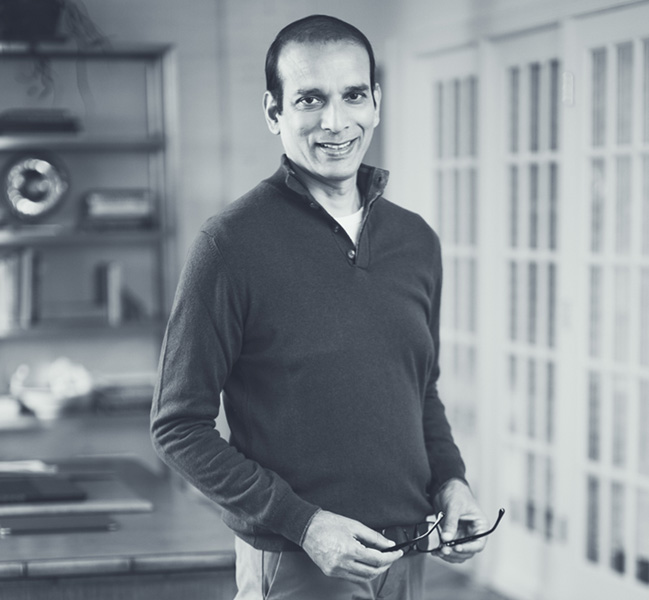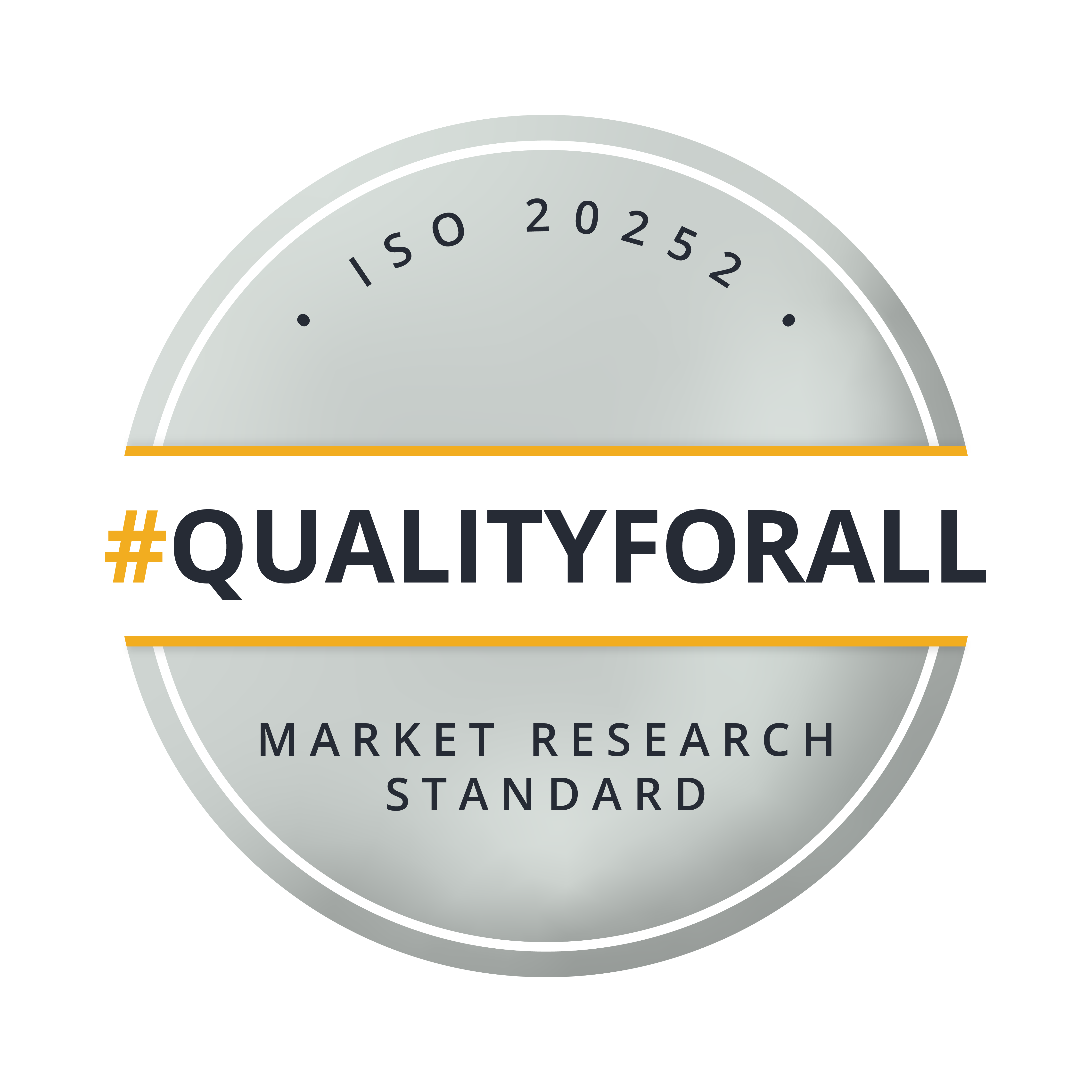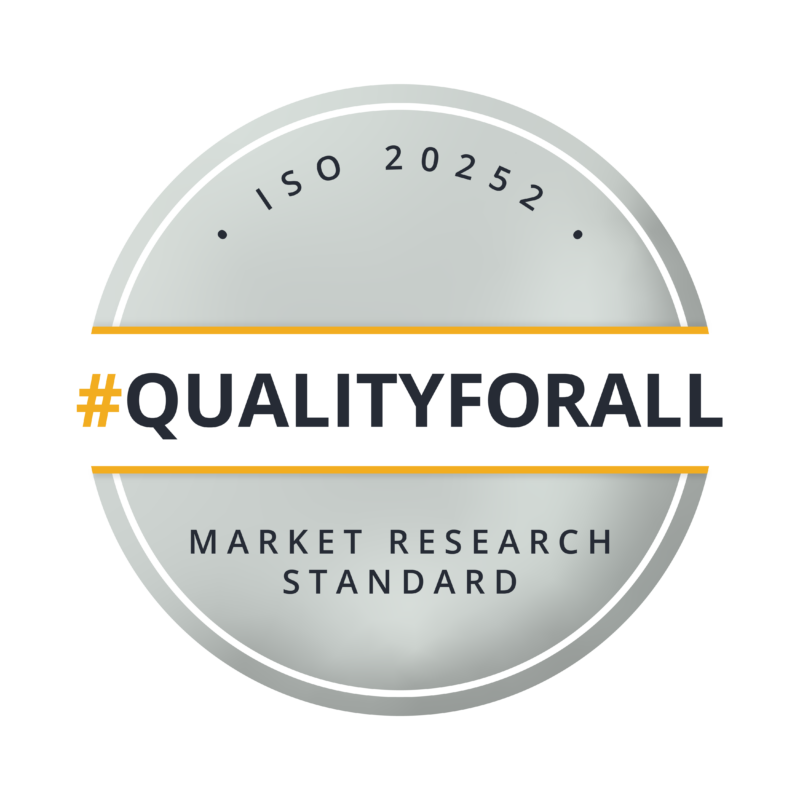
A chat about ISO with Sanjeev Dixit, Vice President & ISO Quality Manager at Reason Research
What is your role in regard to Reason Research and ISO certification?
I introduced the company to ISO 20252, worked with a co-worker to design our documentation from scratch, and led our implementation. Today I serve as our key subject matter expert on quality.
What preconceived notions did you have about ISO certification prior to initiating the process?
I had always thought ISO was only for big corporations with manufacturing plants—if your output is tangible, you need quality guidelines to help you deliver a quality product. And even when I learned an ISO standard for market research existed, I couldn’t envision what it would be. A huge document listing procedures and processes that we’d be required to implement? A standard that forced participating companies to run their businesses the same way? It wasn’t until I communicated with CIRQ that I learned how customized, advantageous—and attainable—certification to ISO could be.
Why did Reason Research choose to move forward with certification?
In 2015, we were a young spin-off from a much larger parent company. We discussed getting ISO certification because of its immediate benefits: We needed to differentiate ourselves. We needed something that would convince prospective clients to partner with us. Certification to an ISO standard is a third-party seal of approval that communicates that we follow best practices and deliver on what we promise, regardless of our company’s size. It gave us a sense of confidence and authority that opened a lot of doors. We also recognized the value of designing our systems while still small; it would be much easier to achieve certification at our inception and then scale as we grow.
What benefits has your company attained since becoming certified to ISO?
Being certified makes it easier to gain visibility, as well as the attention of prospective clients. We promote it in all our collateral, which immediately validates our company to those familiar with the standard, and piques interest in those who are not. Frankly, it gives us something to say that is quite profound, and that resonates with new clients who are looking for quality work. Internally, we find we have much less re-work than we’ve heard our competitors do, and are more organized in project executions. It helps us properly manage our partners and ensure we follow best practices. Being certified to the ISO market research standard helped us get to where we are now: from 11 employees in 2015, to 33 employees today.
What benefits have you experienced personally since becoming associated with ISO?
I recommend anyone wanting to set themselves apart at their company to look into ISO. By taking the lead role, you will have full command of how quality is being addressed across our industry. Your team will turn to you for all matters of compliance, elevating your position internally and with your clients. It’s not that you’ll know everything—for every one thing I know, there are 10 I don’t. But being your company’s quality manager increases your level of confidence and sense of empowerment, which you can then pour into any new initiative that comes your way.
Once you decided to get certified, how much time passed until your audit?
For us it was eight months: We initiated the process in April 2016; our audit was in December. Between that time, we needed to design and implement all required processes, while balancing client work. It was very doable, even needing to write much of our program from scratch. I’ve heard other companies, that already have some of their processes documented, can be ready for audit in as little as six months or even less.
What surprised you about the ISO process?
The burden of designing the quality management system and its implementation was less than what I thought it would be, because the gap between where we were and where we needed to be was much smaller than we anticipated. We were already functioning at a high-quality level—we just needed to document how we did it. Consistency and self-motivation got us to the finish line.
What’s an example of ISO being a saving grace?
Our pipeline of lengthy RFPs has been ramping up, all of which ask questions regarding our data security, storage, PII and more. I lean heavily on our research process management system documents to answer these questions much more expeditiously than I could have without them. The standard also allows us to validate the quality of our work without having to explain ourselves over and over again. Just by saying we’re “certified to ISO 20252” is often enough to satisfy the client’s needs.
What is it like working with your auditors?
I know it sounds crazy, but we look forward to our auditors’ visits! They always accommodate our schedules and are extremely approachable and knowledgeable. You can ask them anything; their role is to help you have a successful audit. The fact that the team is very friendly alleviates any stress throughout the entire process.
What is something you wish you knew prior to starting the process? (If you could tell your “younger” self.)
We should have started earlier. Being certified is just a big help. It is a differentiator in our marketing materials. It gives us peace of mind as we grow—our systems are organized, protected and scalable. Our clients know we follow best practices at every step of the project life cycle. It took us two years after the spin-off to become certified. That’s two years of benefits we missed out on.
What’s the one thing you’d say to persuade a research company to consider certification?
If you’re in research, you’re probably more than half-way to certification. [Editor’s note: Most companies are 80% of the way to certification.] Any business that cares about delivering a quality product is likely already doing what’s needed. The commitment and ROI are wholly worthwhile.



